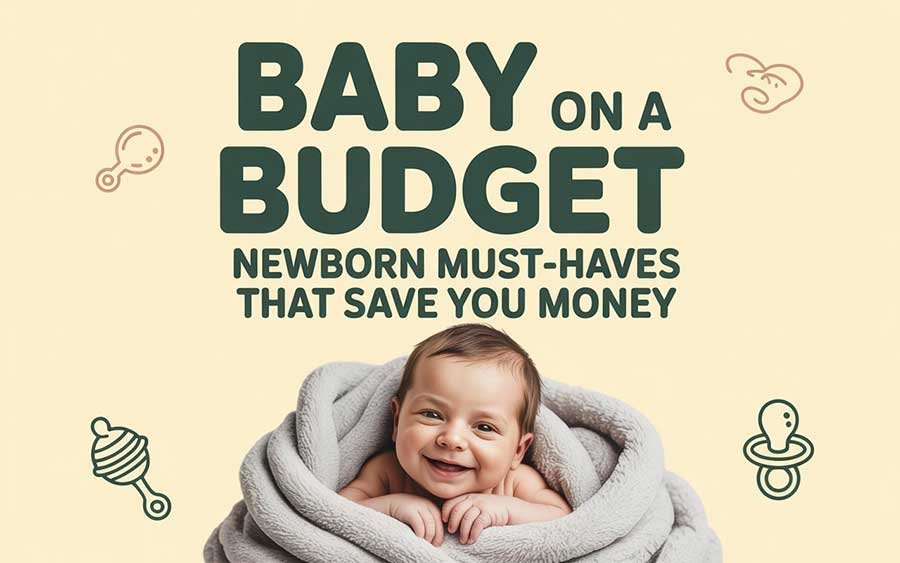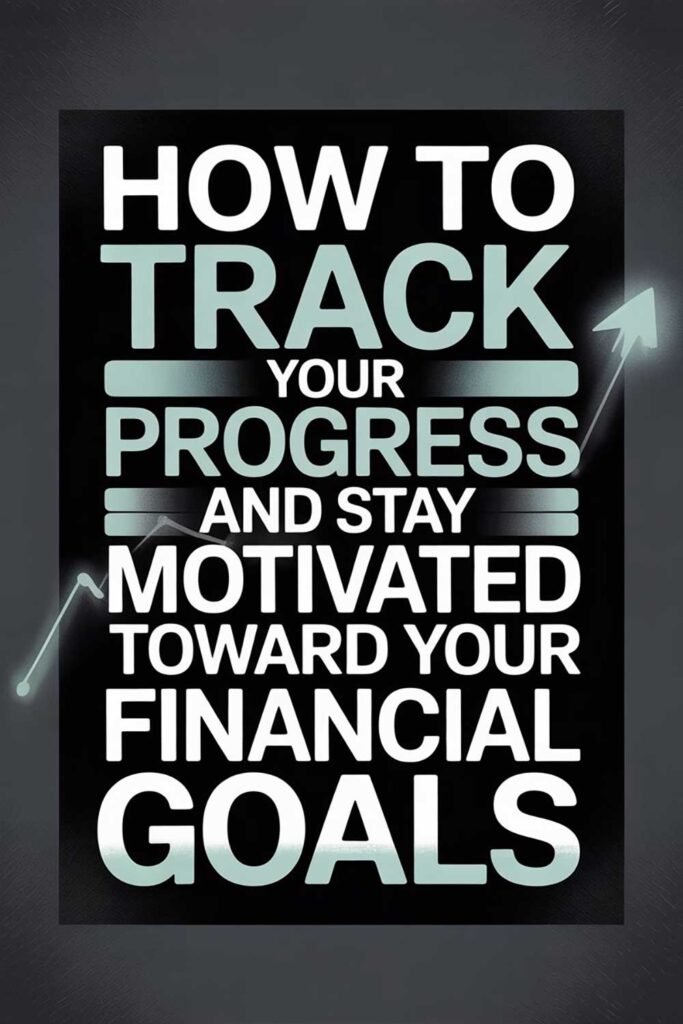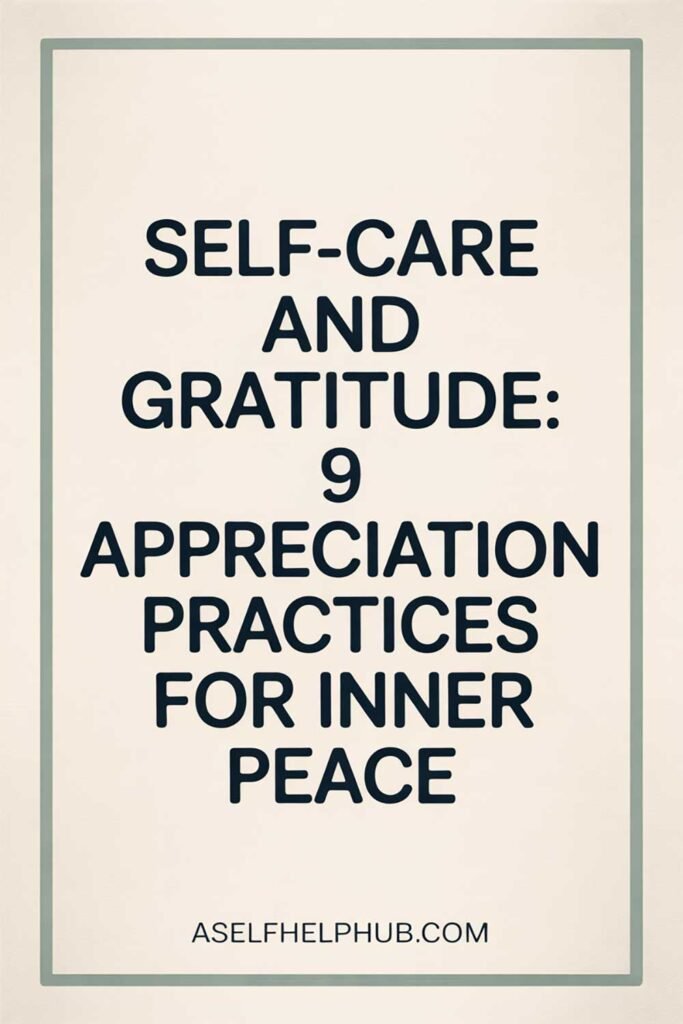
Baby on a Budget: Newborn Must-Haves That Save You Money (And Your Sanity!)
The news is out: you’re expecting! Or perhaps your little one has just arrived, filling your home with gurgles, coos, and a surprising amount of stuff. The moment those two lines appear on a pregnancy test, or that tiny bundle is placed in your arms, a torrent of advice, advertisements, and “must-have” lists begins. From wipe warmers and bottle sterilizers to elaborate nursery furniture and mountains of tiny outfits, the baby industry can make new parents feel like they need to buy everything to be prepared, safe, and “good” parents. The sheer volume of baby gear, coupled with the emotional intensity of welcoming a new life, can quickly lead to financial overwhelm, emptying savings accounts faster than a newborn empties a diaper.

I remember standing in baby stores, stroller-sized tears welling up in my eyes, utterly paralyzed by the sheer volume of choices and the dizzying price tags. Every glossy ad, every well-meaning relative, and every online forum seemed to push a new “essential” item. I felt immense pressure to buy it all, fearing that if I didn’t, I’d be failing my baby. My budget, already stretched thin, groaned under the weight of perceived necessities, and the financial stress almost overshadowed the joy of anticipation. It was a stark introduction to the unique financial challenges of parenting.
But here’s the powerful truth I discovered through trial, error, and a healthy dose of frugality: you don’t need most of what the baby industry tells you you need. A baby needs love, warmth, food, sleep, safety, and clean diapers. Everything else is often a convenience, a luxury, or a clever marketing ploy. Parenting on a budget isn’t about deprivation; it’s about smart, intentional choices that prioritize your baby’s true needs and your family’s financial well-being. It’s about recognizing that true preparedness comes from knowledge and resourcefulness, not from an overflowing nursery.
This comprehensive guide is designed to be your ultimate blueprint for navigating the world of newborn essentials without breaking the bank. We’ll demystify the “must-haves,” expose the “nice-to-haves” that can wait (or be skipped!), and provide practical, step-by-step strategies for getting what you truly need while saving hundreds, if not thousands, of dollars. Get ready to swap financial stress for peace of mind, proving that you can provide everything your baby needs with wisdom, not overwhelming spending.
Why “Baby on a Budget” Is Your Smartest Parenting Strategy
Choosing a frugal approach to newborn essentials isn’t just about saving money; it’s a strategic decision that offers a multitude of benefits for new parents:
- Reduces Financial Stress: Less spending means more money for an emergency fund, debt repayment, or other family goals, leading to greater peace of mind during an already demanding time. This aligns with broader financial tips for new parents, as seen in 10 money-saving tips for new parents.
- Minimizes Clutter: Babies come with a surprising amount of stuff. A minimalist approach means less to organize, clean, and eventually discard.
- Focuses on True Needs: Ditching the “must-have” mentality helps you prioritize what genuinely impacts your baby’s safety, health, and development, rather than unnecessary gadgets.
- Environmental Impact: Buying less new, and opting for used or borrowed items, significantly reduces your family’s environmental footprint.
- Teaches Resourcefulness: It forces you to think creatively, embrace second-hand options, and leverage your community, building valuable skills for future parenting challenges. These foundational skills are important for overall family life, as discussed in Parenting and Family Life.
- Prevents “Mom Guilt” (or “Dad Guilt”): You won’t feel pressured by keeping up with others who overspend, knowing you’re making smart choices for your family.
Remember, a baby needs love and care, not a designer wardrobe or the latest high-tech gadget. Your budget-savvy choices reflect smart parenting from day one.
Your Blueprint for “Baby on a Budget”: Essential Newborn Must-Haves That Save Money
This guide focuses on the absolute essentials for the first 3-6 months, where babies often outgrow items rapidly. Each category highlights budget-friendly choices.
Pillar 1: The “Needs vs. Wants” Filter (Your Guiding Principle)
Before buying anything, ask yourself:
- Is this essential for safety? (e.g., car seat, safe sleep space)
- Is this essential for hygiene/health? (e.g., diapers, basic medical supplies)
- Is this essential for basic feeding? (e.g., bottles/breast pump if needed)
- Can this be borrowed, bought used, or DIYed?
- Can I wait and see if I actually need it?
Category 1: Nursery & Sleep (Safety First, Simplicity Always)
Your baby needs a safe place to sleep, period. The rest is often fluff.
- Sleeping Space (Prioritize Safety & Versatility):
- Crib/Bassinet: While a full-sized crib is a long-term investment, a bassinet is only used for a few months. Consider a mini-crib (smaller footprint, often cheaper) or a playard with bassinet insert (multi-functional, lasts longer).
- Budget Hack: Borrow a bassinet. Many friends/family have one they used for a short period. Or look for used cribs (check for safety recalls and ensure it meets current safety standards, avoiding dropside cribs). Many parents find a playard (pack-n-play) with a bassinet attachment is all they need for the first 6 months, offering a safe sleep space and later, a portable playpen.
- Skip: Expensive crib sets (often unsafe for sleep anyway), bumper pads, elaborate crib mobile (often just decoration).
- Real-Life Example: When Sarah was expecting her first, she felt immense pressure to buy a fancy crib. Instead, her friend offered to lend her a barely used bassinet for the first three months. After that, they bought a simple playard with a bassinet attachment for $80 on Facebook Marketplace. “It was safe, portable, and saved us hundreds on a dedicated bassinet and crib initially,” she said. “The baby slept just fine, and we bought a full crib a year later when we knew we truly needed it.”
- Mattress & Sheets (New is Best for Mattress, Essentials for Sheets):
- Mattress: Buy a new, firm mattress for safety, even if the crib is used.
- Sheets: You only need 2-3 fitted sheets per sleeping space.
- Budget Hack: Choose basic cotton sheets over expensive organic or designer brands. They’ll get dirty quickly anyway!
- Skip: Elaborate crib skirts, multiple sets of matching bedding.
- Blackout Curtains:
- Budget Hack: Use dark sheets or blankets temporarily tacked up, or buy inexpensive blackout liners to attach to existing curtains.
- Why it helps: Crucial for daytime naps and extending morning sleep.
Category 2: Feeding (Efficiency & Prioritization)
Whether breastfeeding or formula feeding, there are ways to save.
- Breastfeeding Essentials:
- Pump: If you plan to pump, check if your insurance covers a free breast pump. Many do!
- Nursing Bras/Tanks: 2-3 are sufficient.
- Milk Storage: Simple plastic bottles or freezer bags work great.
- Budget Hack: Manual pump for occasional use (much cheaper). Used electric pumps (check manufacturer guidelines on multi-user pumps for safety and hygiene). Many moms find they can collect milk in simple bottles or ice cube trays (for freezing, then transfer to freezer bags).
- Skip: Elaborate nursing pillows (a regular pillow works fine), extensive “nursing wardrobe,” expensive sterilizers (hot soapy water and air drying are usually sufficient).
- Real-Life Example: Emily’s insurance covered her electric breast pump 100%, saving her over $200. She received a hand-me-down nursing pillow and found a few comfortable nursing tanks on sale. “I produced milk just fine without all the extra gadgets,” she shared. “It proved how much money the industry tries to convince you to spend.”
- Formula Feeding Essentials:
- Bottles: Start with a small set (4-6 bottles) and see what your baby prefers before buying more.
- Formula: This is a big expense. Look for store brands (often significantly cheaper and nutritionally equivalent to name brands).
- Budget Hack: Buy formula in bulk when on sale. Sign up for formula company coupons and samples. Always compare unit prices.
- Skip: Wipe warmers, fancy bottle sterilizers (dishwasher or hot soapy water is fine for most), bottle drying racks (a clean towel works).
- Real-Life Example: John’s baby preferred a specific bottle nipple, so he was glad he only bought a small starter pack. For formula, he used a store brand that was $8 cheaper per container. “That’s $32 a month right there,” he calculated. “It adds up fast. Our baby thrived on the store brand.”
Category 3: Diapering (A Continuous Expense)
This is where the costs really add up over time.
- Diapers:
- Budget Hack: Buy in bulk at warehouse clubs (Costco, Sam’s Club) or when on sale at supermarkets. Compare unit prices carefully. Don’t be afraid of store brand diapers – many are excellent and much cheaper.
- Consider Cloth Diapers: Higher upfront cost, but significant long-term savings. Can be bought used on local online groups.
- Skip: Diaper disposal systems (a regular trash can with frequent emptying works).
- Real-Life Example: The Chen family switched to store-brand diapers after realizing they performed just as well as the expensive name brands. “We saved about $20-$30 a month just on diapers,” Sarah noted. “It was like magic money appearing in our budget every month.”
- Wipes:
- Budget Hack: Buy in bulk. Look for store brands or large economy packs. Consider using reusable cloth wipes (higher upfront, long-term savings).
- Skip: Expensive scented wipes (often irritate baby’s skin anyway).
Category 4: Transportation (Safety & Adaptability)
Safety is paramount here, but you can still be smart.
- Car Seat (Non-Negotiable for Safety):
- Budget Hack: Invest in a convertible car seat from day one if it fits your newborn (check weight minimums). These seats convert from rear-facing infant to forward-facing toddler, saving you from buying a separate infant-only seat. Never buy a used car seat unless you know its full history (no accidents, not expired), which is almost impossible to verify. This is one area to buy new.
- Skip: Travel systems (stroller + car seat combo where the stroller is often bulky and short-lived). You can buy a standalone convertible car seat and a separate, simpler stroller.
- Real-Life Example: When Tom’s sister offered him her old infant car seat, he politely declined, knowing the safety risks of used car seats with unknown histories. He opted for a highly-rated convertible car seat that fit newborns and would last until his child was much older. “It was an investment, but it saved me from buying two different seats,” he reasoned.
- Stroller (Simplicity & Longevity):
- Budget Hack: Prioritize a simple umbrella stroller or a lightweight, collapsible stroller that will serve you well into toddlerhood. Avoid bulky, expensive “travel systems” that you may outgrow quickly. Look for used strollers in good condition.
- Skip: Multiple strollers for different “purposes,” high-end modular systems that are costly.
- Real-Life Example: Lisa received a large, clunky travel system as a hand-me-down. She quickly found it too cumbersome. She then bought a lightweight, foldable umbrella stroller on sale for $40. “It was the only stroller I ever needed,” she said. “Easy to get in and out of the car, folds small, and lasted years.”
Category 5: Clothing (Less is More!)
Babies grow incredibly fast. Resist the urge to overbuy.
- Quantity & Sizing:
- Budget Hack: Buy very few newborn (0-3 month) items, as babies grow fast. Focus on 3-6 month sizes. Prioritize onesies and sleep-and-plays (easy for diaper changes, no separate pants/shirts).
- Buy Second-Hand: This is where you save big. Babies rarely wear outfits more than a few times. Consignment shops, online marketplaces (Facebook Marketplace, local parent groups), thrift stores, and hand-me-downs from friends/family are goldmines.
- Skip: Fancy outfits (they’ll wear them once), excessive amounts of clothes in any one size, baby shoes (until walking).
- Real-Life Example: Andrew’s entire baby wardrobe for the first year was acquired from a combination of hand-me-downs from cousins and thrift store finds. “I spent maybe $50 on all his clothes for the first year,” he recalled. “They were barely worn! It’s insane how much you can save here.”
Category 6: Bathing & Health (Basic & Practical)
Simple is often best for baby’s sensitive skin and basic care.
- Bathing:
- Budget Hack: A simple plastic baby tub is fine, or simply use a clean sink lined with a towel.
- Basic Soap/Shampoo: Choose unscented, gentle baby soap.
- Skip: Elaborate bath seats, expensive bath toys (regular washcloths work).
- Health Kit:
- Must-Haves: Digital thermometer, baby nail clippers/file, nasal aspirator (bulb syringe), basic infant Tylenol/Motrin (ask pediatrician for guidance).
- Budget Hack: Buy a basic pre-assembled baby health kit or assemble your own with essentials.
- Skip: Fancy vaporizers (a warm shower with baby works for congestion), extensive baby first-aid kits (most items aren’t needed right away).
Category 7: Play & Development (Simplicity & Rotation)
Babies are easily entertained by faces, sounds, and simple objects.
- Toys:
- Budget Hack: Babies don’t need many toys. Focus on a few age-appropriate items that offer different textures/sounds (e.g., rattles, soft books, simple teething toys). Borrowing or rotating toys from friends/family works wonderfully. Household items like wooden spoons, plastic containers, or crinkly paper are often favorites!
- Skip: Huge toy chests, expensive electronic toys that do everything for the baby, subscription toy boxes (unless gifted).
- Real-Life Example: Tom’s baby loved simple, high-contrast black-and-white books more than any expensive electronic toy. He borrowed a bag of infant toys from a friend whose child had outgrown them. “It’s amazing how easily entertained babies are,” he said. “A crinkly piece of aluminum foil was often more engaging than a $30 toy.”
Category 8: Parent Essentials (Remember Yourself!)
Don’t forget what you need as a new parent.
- Postpartum Recovery:
- Budget Hack: Your hospital often sends you home with many essentials (peri bottles, mesh underwear, pads). Stock up on basic pads and pain relievers.
- Skip: Expensive “recovery kits.”
- Prepared Meals:
- Budget Hack: Meal prep before baby arrives! Cook and freeze large batches of easy-to-reheat meals. Organize a meal train with friends/family.
- Why it helps: Reduces reliance on expensive takeout during the challenging early weeks. This is a brilliant hack for managing expenses and time, similar to the broader money-making hacks for stay-at-home parentsthat prioritize efficiency.
- Real-Life Example: Lisa’s friends organized a meal train for the first two weeks after her baby arrived. “It was the most thoughtful gift we received,” she shared. “Not having to think about cooking for two weeks saved us so much money on takeout and reduced our stress immensely.”
- Support Systems (Non-Financial, But Priceless):
- Budget Hack: Lean on your village! Friends, family, parent support groups (online and in-person) for advice, hand-me-downs, and emotional support. This is vital for navigating parenting challenges.
- Skip: Over-reliance on expensive paid services if a free support network is available.
The Mindset Shift: From Consumer to Conscious Parent
Embracing a “Baby on a Budget” philosophy isn’t about being cheap; it’s about being smart, strategic, and deeply intentional. It’s about recognizing that true love and care for your newborn are expressed through your presence, your attention, and your wise stewardship of resources, not through a mountain of expensive gear. This approach reduces financial stress, fosters creativity, and sets a positive tone for a resourceful parenting journey from day one. You’ll be amazed at how much you can save, and how little you truly need, to welcome your precious new family member with confidence and calm. The principles are universal, applying even to later stages like how to navigate parenting teens with empathy, always focusing on essential needs over wants.
Picture This…
Imagine your home, cozy and calm, welcoming your newborn. The nursery isn’t overflowing with unnecessary gadgets, but thoughtfully arranged with a safe sleeping space, essential changing supplies, and a few cherished items. You’re confidently changing diapers from your bulk-bought supply, feeding your baby with chosen essentials, and dressing them in adorable, pre-loved outfits. The financial anxiety that plagues so many new parents is largely absent, replaced by a profound sense of peace and preparedness. You have money in savings, you’re not battling debt, and your focus is squarely on bonding with your little one, knowing you’ve provided everything they truly need with wisdom, not overwhelming spending. This isn’t just about saving money; it’s about building a foundation of financial health and calm for your growing family.
20 Powerful Quotes on Parenting, Frugality, and Simplicity
- “A baby fills a place in your heart you never knew was empty.” – Unknown
- “The best things in life are free: hugs, smiles, friends, family, sleep, love, laughter and good memories.” – Unknown
- “Babies don’t need stuff. They need love.” – Unknown
- “It is not the amount of money, but the amount of intentionality behind it that truly matters.” – Unknown
- “Frugality is founded on the most generous of instincts, and is the happy medium between avarice and profusion.” – Charles Caleb Colton
- “You can’t buy happiness, but you can buy less stuff, and that’s kind of the same thing.” – Unknown
- “The greatest wealth is health.” – Virgil (For both parents and baby).
- “Simplicity is the ultimate sophistication.” – Leonardo da Vinci (Applies to baby gear!).
- “Children are not a distraction from more important work. They are the most important work.” – C.S. Lewis
- “The value of a dollar is to buy just what you need, not to get what you want.” – Proverb
- “Being frugal is not about cutting out all the things you love. It is about cutting out the things you don’t love so you can afford the things you do.” – Melissa Blevins
- “A budget is telling your money where to go instead of wondering where it went.” – Dave Ramsey
- “The only thing that has to be perfect is the love you give them.” – Unknown (About parenting, not possessions).
- “Empty pockets never held anyone back. Only empty heads and empty hearts can do that.” – Norman Vincent Peale
- “It’s not about having it all; it’s about having what truly matters.” – Unknown
- “What you do speaks so loudly that I cannot hear what you say.” – Ralph Waldo Emerson (Model financial wisdom).
- “The more things you own, the more things own you.” – Unknown
- “Parenthood is a great filter for what truly matters in life.” – Unknown
- “You must gain control over your money or the lack of it will forever control you.” – Dave Ramsey
- “If you want to live a happy life, tie it to a goal, not to people or things.” – Albert Einstein (Financial freedom for family).
Disclaimer
Please note: This article is intended for general informational purposes only and is based on common parenting advice, budgeting principles, and anecdotal experiences. Recommendations regarding specific products or safety standards should always be verified with current official guidelines (e.g., from the American Academy of Pediatrics, relevant government safety agencies). Individual baby needs, family circumstances, and local resources vary. This content is not a substitute for professional medical advice, financial counseling, or personalized parenting guidance. Always prioritize your baby’s safety and consult with healthcare providers for all medical concerns.
Share This Article!
Are you preparing for a new arrival and ready to welcome your baby without breaking the bank? If this guide has offered clarity and inspiration, please share it with other expectant or new parents! Let’s empower more families to make smart, budget-savvy choices for their little ones.






